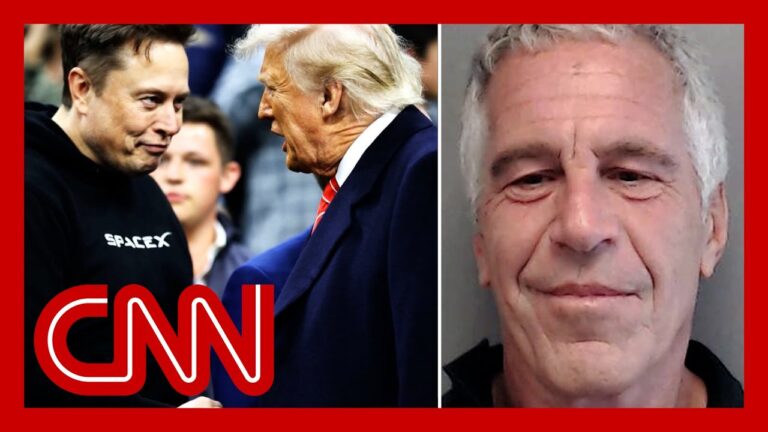Video at the bottom!
In a dramatic turn of events, the relationship between President Donald J. Trump and billionaire Elon Musk has rapidly deteriorated. Musk recently made unfounded allegations suggesting that Trump may be implicated in the Epstein files, stating on social media, “time to drop the really big bomb Donald Trump is in the Epstein files.” This claim, which has not been validated, insinuates that Trump could have been referenced in association with Jeffrey Epstein, a convicted sex offender who died in prison while awaiting trial.
Musk’s accusation is particularly inflammatory, condemning Trump in a manner that draws serious implications. He has provided no specifics about the content of any potentially unreleased documents. For years, there has been speculation among right-wing figures about the government’s supposed concealment of secrets concerning Epstein, with calls for the release of pertinent files intensifying among Trump’s supporters.
The precipitous decline in the Trump-Musk relationship is perplexing, especially given their previous camaraderie. Just days prior, Musk stepped down from his advisory role to the president, during which time Trump honored him with a symbolic ceremonial key to the White House. The tension escalated further when Musk criticized a large infrastructure bill, arguing it was laden with unnecessary spending. Responding to Musk’s harsh remarks, Trump expressed disappointment, stating he would prefer criticism aimed at him rather than the bill itself.
As their feud unfolded publicly, Musk retaliated by asserting that Trump heavily benefited from his prior support, indicating, “without me, Trump would have lost the election.” Trump countered by labeling Musk as weak and implying that Musk’s electric vehicle initiatives were not beneficial.
The exchange has sparked widespread speculation and concern among political observers regarding the implications for both the GOP and the broader political landscape, particularly as midterm elections approach. Some political analysts suggest that the public feud could ultimately work against their mutual interests and hinder legislative progress.
Both figures remain entrenched in their positions, and the potential fallout from this rift continues to attract scrutiny and debate within political circles.


